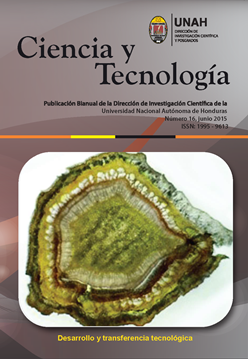Scent marks: an evolutionary or restrictive right? Comparative law perspective (Honduras-Colombia)
DOI:
https://doi.org/10.5377/rct.v0i16.2184Keywords:
olfactory mark, distinctive signs, directorate general of intellectual property, superintendence of industry and commerce, distinctiveness, graphic representation, and perceptibilityAbstract
This paper seeks, analyzes and synthesizes the writings related to the topic of scent marks from a national and international perspective on the legal rules concerning, doctrine and jurisprudence governing these distinctive signs, explaining in turn the problems faced when applying its registration with the relevant registry office. As for the legal recognition, the international doctrine is completely divided, some authors believe that the scent marks should be recognized and protected as such, others meanwhile resist conceive such idea. Similarly, the legal requirements that restrict the entry of hon visible marks around the world, revolves around three basic requirements: distinctiveness, visibility, and graphical representation. In that order, and in relation to the entry into force of the Free Trade Agreement signed by the Dominican Republic-Central America and the United States of America (DR-CAFTA), Honduras joined the legal compendium registration Scent Trademarks into its law therefore meeting the requirements and legal reasoning of the Directorate General of Intellectual Property (DIGEPIH) and the Superintendency of Industry and Trade of Colombia addresses this problem. In fact, both governmental entities may be protecting their declarations of refusal under the threshold of the basic requirements inherent in any brand, which are evident in the Sieckman judgment despite the explicit recognition of distinctive odors in the inside of their legal briefs signs. Anyway, the research aims to establish a comparison between Colombia and Honduras in relation to those marks, on the law concerning the law, doctrine and international jurisprudence analysis.
Revista Ciencia y Tecnologia No. 16, Junio 2015: 133-149
Downloads
1300
Downloads
Published
How to Cite
Issue
Section
License
© Revista Ciencia y Tecnología
Authors who publish in this journal accept the following conditions: In accordance with the legislation of copyright, Revista Ciencia y Tecnología, recognizes and respects the moral right of authors, as well as the ownership of the patrimonial right, which will be ceded to the magazine for its diffusion in open access in printed version and in digital format. By being part of multiple indexers, databases and reference systems, the articles published by Revista Ciencia y Tecnología will be visible and will be downloaded from these websites, indicating, in all cases, the authorship of the articles, the date of publication and the number of the journal to which they correspond.




